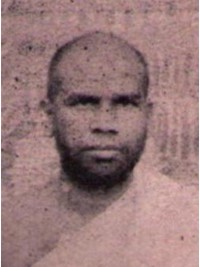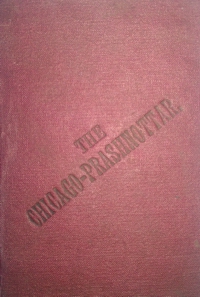61. Question:
In what respects do statements about God found in different religious books agree and in what do they differ?
Answer:
Jains, Naiyayikas, Patanjalists, Buddhists, and the followers of the Vedas hold God to be omniscient. That God is without a body is a common belief. That God is one without any beginning is the belief of the followers of Nyaya and Vaisheshika doctrines and of the Vedas. The Jains and the Buddhists hold God to be beginningless but not one. The followers of the Vedas and of the Nyaya and Vaisheshika doctrine believe God to be the creator of the universe but this is not the view of the Jains and the Buddhists. All except the Jains believe that God takes incarnations in the world, being born in the womb of a woman. Except the Jains and the Buddhists the followers of all other religions consider God to be omnipresent. The Jains too consider God to be omnipresent by reason of his faculty of knowledge and not owing to his body. God is considered to do justice and give reward or punishment to all beings by all religionists except the Jains and the Buddhists. Similar is the view as regards God's power to do what he likes. In respect to the following attributes of God, all religions hold a common view, subject to differences now and then in the meanings of these words.
The attributes are:
Without age, without death, without birth, without measure, without impurity, without form, unthinkable, uncountable, Brahm, Lord, infinite, immutable, Lord of the ascetics, full of knowledge, stainless, unchangeable, undecaying Supreme Lord, Supreme goal, controller, bliss, self-existence, incomprehensible, knower of present, past and future, master-Lord, Lord of the Universe, immovable, imperishable, &c. &c.
62. Question:
What are the views about the existence of God in modern times?
Answer:
The atheists hold that there are no such things as soul, God, merit or demerit, heaven or hell, salvation &c except the five elements of earth, water, fire, air and space from which all other things viz., soul etc., naturally evolve and dissolve. Many men believe that whatever happens in the world happens by the desire of God. It is God and God alone who creates, nourishes, and destroys. Many others believe that the world has been created by God who gives happiness of heaven or sufferings of hell to the created beings according to their good or bad actions. The Vedantists hold that whatever there is in the universe is but Brahma who manifests himself in various ways. The belief of the Jains is that when a being after having done good actions in innumerable births attains the position of a Tirthankar or Arhat in any birth, he shows to all deserving beings the way to liberation, which leads to the promulgation and performance of virtuous deeds. When a Tirthankar or Arhat shuffles off this mortal coil and attains salvation, he becomes a Siddha (the perfect) who is full of the eternal bliss of knowledge, of an eternal life of unending joys. He never does anything pertaining to the mundane affairs. These are in brief the various beliefs of people.
63. Question:
What is the nature of man?
Answer:
It is man's nature to desire that he is highly respected and esteemed by others, that he is superior to others in prosperity riches, family, beauty, health, and physical strength, that he becomes famous in the world and that he may attain a higher position in future. By reason of tricks, anger, pride, greed, passion, jealousy, &c, man's nature is vitiated. It is by the practice of virtues that a man becomes possessed of forgiveness humility, serenity of mind, contentment, passion, hatred &c.
64. Question:
What is the superiority of man?
Answer:
Man considers himself superior to all animal kingdom in wisdom.
65. Question:
In what respect is man inferior to God?
Answer:
The liberated souls whether in body or without body possess pure knowledge, pure sight, infinite power, infinite happiness, immortality, birthlessness, immutability, purity, immovability, indestructability, &c.; such infinite powers are their characteristics. In the case of a man these powers remain clouded by the darkness of actions. This is the inferiority of man to God.
 Shrimat Vijyasandsuri
Shrimat Vijyasandsuri
